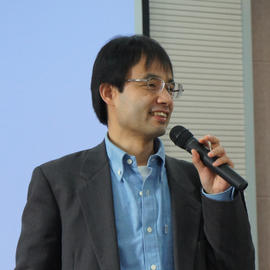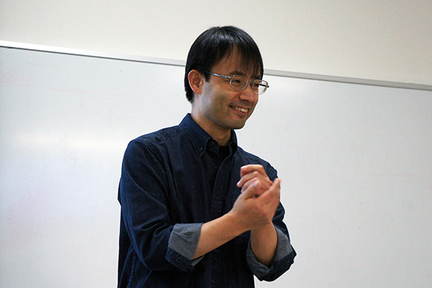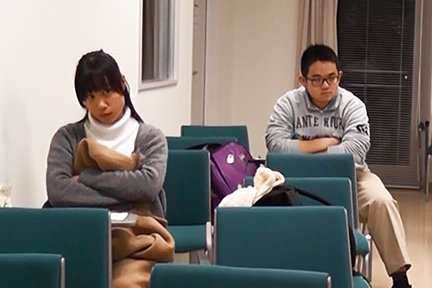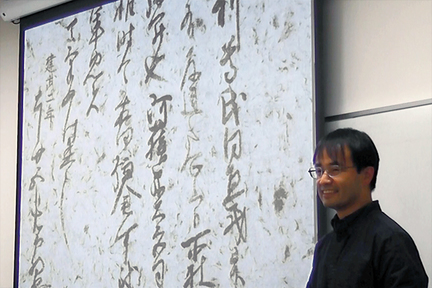I Want to Learn How to Think Beyond Academic Disciplines
Vol.11 2015.01.07 WATANABE, Masao
Disposal and Reuse of Documents in Japan
As represented by used paper and recycled paper, paper can be called a typical example of recycling wastes. In pre-modern Japan, too, some paper documents were remade for new pieces of paper for other writings like they would be today, while others were used for recording events or information as well as copying books from earlier eras and sacred books by using black spaces on the backside. A characteristic example of the former is shukushi, or light-gray paper that was made from used paper, and one of the examples of the latter is called shihaimonjo.
In this lecture, I will explain about the process of the making, preservation, disposal, and reuse of documents, or what kinds of documents were disposed of according to what standards in the imperial court or shogunate and how those documents were reused. Furthermore, I would like to use several case studies and think about what can be learned from things like shihaibunsho that was disposed of, reused, and thereby passed on to our era, in a somewhat similar way to how we analyze human wastes and learn about health conditions and eating habits of the past.
- Instructor
-

- WATANABE, Masao
- Associate Professor at Tokyo University's Historiographical Institute. major is history of Japanese legal system. I hope to illuminate the specific ways in which relations between the law, the system, and rights historically transformed by looking at historical sources. I am currently interested in the roles played by non-academic individuals with legal knowledge and expertise in the structural change of social order in the 14th century.
comments(最新2件 / 4)
- 2015年01月13日 11:26 reply
日本における文書の破棄と再利用という、いままで気にも留めなかったことについて、話を聞かせていただきとても興味が持てました。鎌倉時代の裁判について、理系で深くは学んでいないのですが日本史では頼朝の慣習にしたがって判決がなされていたと習った記憶がありましたが、前半期の文書の管理などを知るとそれもあまり当てにならないのかもしれないなと思いました。いままで歴史は学問として成立していて習うものという認識が強かったのですが、過去を知るに当たってこういった文書の重要性を知り、歴史は研究対象であり、残る文書によって少なからず現代への伝わり方も変わるのだなと改めて感じました。
- 2015年01月13日 21:35 reply
いまある歴史を構成する文書はすべて、破棄されずに残ったものであり、破棄された文書のもつ情報は、歴史から除外されているという点が新鮮だった。現代における文書の存在そのものが、文書が作られてから今に至るまで必要とされつづけた証拠であり、文書の集合として歴史を見ると、文書の執筆者たちだけではなく、それを保存してきた保管者の意図も、歴史に介在していると考えられる。ふだん我々は歴史的文書をみるとき、執筆者の意図のみを強く認識するが、破棄という可能性を加味することで、綿綿と文書を受け継いできた保管者の意図をも汲み取ることが出来る気がした。
- 2015年01月13日 22:13 reply
文書の保管・廃棄は今まで詳しく学んだことはなかったのでとても興味深かったです。廃棄されるはずだった正倉院文書や引付頭人が私的に使用したものが、公式に保存していたものよりも長期間に渡って残った、という矛盾がとても皮肉に感じました。
Post a Comment
- Other Lessons



史料の廃棄・保存にも生物の排泄と同じようにその時々に応じた取捨選択が行われ、今現在貴重なものとされている史料の中にも時代によってはひどい扱いを受けていたということがわかって面白かった。